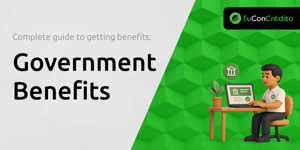As young adults step into increasing financial responsibilities, the gap between desire and access to quality financial education has never been more evident. With economic pressures mounting, early guidance becomes not only beneficial but essential for navigating the complexities of money management.
Empowering this generation with practical knowledge can shape lifelong habits, foster confidence, and support healthier financial futures.
Understanding the Urgency of Early Financial Education
Studies show that 87% of Americans believe personal finance should be taught in high school, yet only 52% of teens report access to such courses. This mismatch highlights a critical need to bridge educational gaps before young adults face real-life money decisions.
Without intervention, Gen Z is at risk: nearly 18% feel “not at all” financially literate, up from 12% two years ago. Economic factors like inflation and student debt only intensify uncertainty.
By laying a foundation for future success early on, educators and families can reduce the annual $500 million loss the U.S. endures due to widespread illiteracy, while equipping youth with confidence.
Key Pillars of Financial Literacy
An effective financial curriculum addresses core competencies that every young adult must master to thrive.
- Budgeting: Tracking income versus expenses and creating sustainable spending plans.
- Saving Strategies: Building emergency funds and setting achievable savings goals.
- Credit and Debt Management: Understanding interest, credit scores, and responsible borrowing.
- Investing Basics: Exploring stocks, bonds, and the power of compounding over time.
- Tax Fundamentals: Learning to file returns and navigate tax obligations.
- Student Loans and Financing: Comparing repayment plans and grants for higher education.
- Consumer Skills: Smart shopping, contract analysis, and avoiding common pitfalls.
- Digital Safety: Recognizing scams, protecting identity, and secure online banking.
These pillars form the backbone of any robust program, ensuring learners gain a comprehensive toolkit for financial independence and long-term stability.
The Proven Impact of Structured Programs
Evidence confirms that states requiring high school financial education see measurable gains among young adults. Participants demonstrate higher credit scores, fewer delinquency incidents, and enhanced confidence when tackling financial challenges.
Interactive approaches—like gamified tax simulations and mobile banking modules—resonate strongly with Gen Z, fostering engagement and practical skill development.
These numbers underscore the transformative potential of curriculum mandates when executed with fidelity and supported by quality resources.
Overcoming Barriers and Building Equity
Despite clear benefits, access remains uneven. Only 10 of 27 states promising standalone courses have fully implemented them, and socioeconomic divides persist.
Families often lack the time or expertise to supplement school-based lessons, and taboo around money discussions can stifle learning at home.
Organizations like Junior Achievement and EVERFI are stepping in to offer free or low-cost programs, addressing gaps and cultivating smart spending and saving habits through experiential learning.
- Partnerships with banks and community groups to host workshops.
- Integration of online platforms offering self-paced modules.
- Teacher training initiatives to enhance classroom delivery.
By leveraging these solutions, educators and policymakers can empower responsible financial decision-making across diverse communities.
Practical Steps Young Adults Can Take Today
While systemic change evolves, individuals can adopt strategies right now to strengthen their financial footing.
- Track spending for one month to identify areas for adjustment.
- Automate savings contributions into a separate account.
- Review your credit report annually and dispute inaccuracies.
- Experiment with low-cost investment apps to understand market basics.
- Use interactive budgeting tools to visualize cash flow.
These actions, when reinforced consistently, begin building lifelong money management skills and navigating real-world financial challenges with greater ease.
Conclusion
Financial education for young adults is not a luxury—it is a necessity that can redefine life trajectories and unlock opportunities. By championing early, accessible, and engaging curricula, we can transform anxiety into assurance and confusion into clarity.
When learners are supported through comprehensive programs, leveraging interactive learning tools effectively, they emerge poised to create wealth, weather economic shifts, and contribute positively to society. The future generation deserves no less than our full commitment to their financial empowerment.
References
- https://www.aba.com/about-us/press-room/press-releases/new-survey-americans-support-financial-education-in-schools
- https://www.weforum.org/stories/2024/04/financial-literacy-money-education/
- https://cricketmedia.com/news-press/crickettogether-news-resources/building-money-smarts-how-early-financial-education-empowers-the-next-generation/
- https://www.occ.treas.gov/publications-and-resources/publications/community-affairs/financial-literacy-updates/financial-literacy-1st-quarter-2025.html
- https://jagkc.org/68-percent-teens-want-financial-education/
- https://igradfinancialwellness.com/study-validates-effects-of-financial-literacy-on-young-adults/
- https://everfi.com/k-12/financial-education/
- https://civicscience.com/gen-z-financial-literacy-younger-americans-face-uncertainty-but-are-more-proactive-in-saving-and-seeking-financial-advice/










